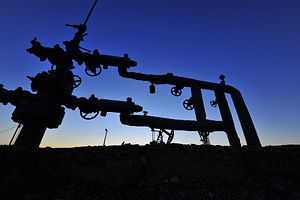Turkmen authorities are endlessly optimistic, especially when it comes to energy diversification. According to Trend, the Turkmen oil and gas ministry released a statement Monday that said “Turkmenistan has proved itself as a reliable and promising partner in international cooperation, by confirming its status as one of the largest suppliers of gas to the world markets.” The statement went on to note Ashgabat’s plans to diversify the country’s energy export partners into Europe. Certainly, Turkmenistan is one of the largest suppliers of gas in the world but nearly all of that gas currently goes to China.
Not to blame geography, but Turkmenistan doesn’t have many options. Its regional neighbors either have resources of their own or represent such a small demand as to be nearly negligible in comparison to the supply Turkmenistan can provide. In the meantime, Russia, which once imported and re-exported Turkmen gas to Europe, has stopped buying from Ashgabat. Last year was marked by diplomatic clashes, likely over price, which led first to Gazprom cutting the amount Russia imported then to a case in a Swedish arbitration court and finally to Gazprom’s reported decision to cease buying Turkmen altogether.
It’s not surprising then, that Turkmenistan’s next move is to push to supply Europe directly–without going through Russian pipes. Last spring Turkmenistan had Marcos Sefcovic, the European Commission vice president in charge of the energy union initiative, convinced enough to say that “Europe expects supplies of Turkmen gas to begin by 2019.”
It’s not that simple though. Europe is at least one sea (or lake, depending on who you ask) and thousands of miles away and determining who owns which piece of seabed (lakebed) has been a 20-year headache.
Nigar Orujova, writing for Azernews commented that to anyone not familiar with “the realities of the region” it might seem odd that the Caspian’s five littoral states have spent 20 years dithering over whether to call it a lake or a sea. Trivial as it seems linguistically, in the eyes of international law (namely the UN Convention on the Law of the Sea) it’s a tremendously important distinction. Orujova points out that prior to the collapse of the Soviet Union, the issue stood between only two states: the USSR and Iran. With the end of the Soviet Union, Kazakhstan, Turkmenistan and Azerbaijan then had claims to the waters and more importantly, what lay beneath them.
Last week, the 43rd session of a working group convened in Ashgabat to discuss the issue. Bruce Pannier put it best:
My favorite part was the line in nearly every report that the “heads of the delegations expressed the positions of their states regarding the legal status of the Caspian Sea.”
Representatives of the five countries have been meeting on the topic for some 20 years. This was the 43rd session of the special working group. It is difficult to believe the positions of the countries are not well-known by this point.
Turkmenistan has already constructed a pipeline to supply the Trans-Caspian pipeline, should it ever come to fruition. But as Max Hess noted last week on Registan, “The pipeline, fittingly known as East-West, currently has no economic value.” And it won’t until the Caspian is delimited. Granted, last year the five parties agreed to a legal status for the surface water. The seabed, however, is a trickier and more profitable determination.

































